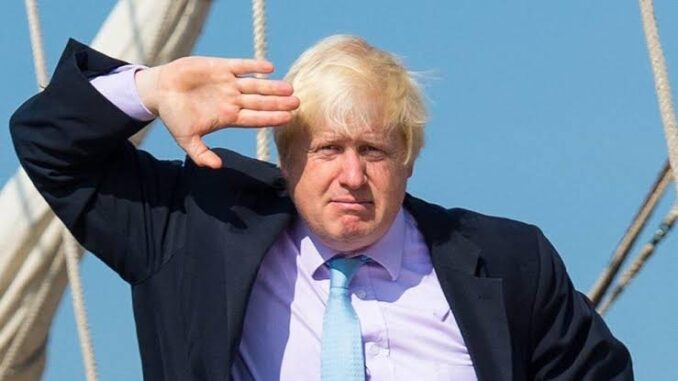

When former British Prime Minister Boris Johnson recently revealed he had undergone a routine medical procedure at a private hospital in the UK, it reignited conversations about how leaders interact with public institutions particularly healthcare. His statement that he was “not ashamed” of using private care, even in a country with a world-renowned public system like the National Health Service (NHS), sparked both support and criticism.
While that debate continues in the UK, it invites a broader reflection, especially in the Nigerian context, where leaders’ medical choices have long raised questions about public confidence in local healthcare systems.
Rather than focusing on any single individual, this article examines a pattern: the long-standing tradition of political elites in Nigeria seeking medical care abroad, a trend that reached its most visible peak during the administration of late President Muhammadu Buhari.
In Boris Johnson’s case, his choice to use private healthcare was not illegal, nor hidden. He acknowledged it publicly and stood by it. But it struck a nerve because the NHS though facing capacity challenges is a symbol of equality in the UK. When public figures opt out of that system, it raises legitimate concerns: Do they still believe in the system they helped govern?
Yet, Johnson’s decision was still within the UK. He contributed to the system by staying local, paying taxes, and trusting domestic medical professionals, a choice many in countries like Nigeria can only hope their leaders would make.
In Nigeria, healthcare infrastructure has struggled for decades plagued by poor funding, brain drain, outdated equipment, and overburdened facilities. These challenges have often pushed even the most patriotic citizens to seek treatment abroad.

Former President Muhammadu Buhari, whose legacy remains a major part of Nigeria’s recent political history, spent a considerable amount of time receiving medical treatment overseas during his tenure. These trips, particularly to the UK, spanned several weeks and, at times, months.
To be clear: health is a deeply personal issue. Like any human being, a leader deserves privacy, care, and dignity especially in illness or old age. But the optics of a sitting president repeatedly relying on foreign healthcare, while public hospitals in Nigeria face decay and staff shortages, understandably concerned many Nigerians.
Rather than condemn or criticize a departed leader, it is more constructive to reflect on what his experience revealed: a national healthcare system in urgent need of reform and reinvestment.
Leaders hold influence not just in laws and policies, but in their choices. When they use local services whether it’s a school, hospital, or public transport, it shows commitment. It sends a message of trust and inspires reform.
Boris Johnson’s choice, while controversial, remained within national boundaries. He used the UK’s healthcare system and acknowledged it publicly.
In contrast, Nigerian leaders, across different administrations and parties, have often traveled abroad for even basic procedures. This trend undermines local confidence, especially when ordinary citizens cannot afford the same privilege.
The question isn’t about guilt or shame. It’s about whether national leaders believe enough in their own systems to use them and if not, what they’re doing to change that.
Despite its challenges, Nigeria has brilliant doctors, skilled nurses, and potential for world-class medical infrastructure. But that potential is being lost to brain drain, as thousands of Nigerian medical professionals leave for better opportunities in the UK, Canada, and the US.
Rebuilding trust starts from the top. Leaders must make personal decisions that align with national goals. Imagine the impact if governors, ministers, and future presidents were to undergo medical treatment in Nigerian hospitals — publicly, confidently, and safely. That shift alone could inspire massive improvements in service delivery, staffing, and funding.
As we reflect on the healthcare legacies of public figures, it is important to do so with empathy. President Muhammadu Buhari, now of blessed memory, served his nation for decades in various capacities. Discussions around his medical history are not meant to attack, but to learn, evolve, and build a better future for all Nigerians.
True national progress comes when we can examine the past with honesty and compassion and use its lessons to shape a better tomorrow.
Boris Johnson’s recent private hospital visit may have stirred headlines in the UK, but it also provides a global opportunity to reflect on leadership and public healthcare. For countries like Nigeria, the goal must be to ensure that no leader current or future ever needs to look beyond its borders for care.
May the next generation of Nigerian leaders choose to invest, believe, and trust in Nigeria’s healthcare system for themselves and the millions who depend on it.
Note to Readers:This article is an opinion piece. Boris Johnson did not comment on Nigeria or its healthcare system. Comparisons made are the writer’s own
Tags: #Nigeria #UK #BorisJohnson #MuhammaduBuhari #Healthcare #Leadership #MedicalTourism #PublicTrust

Leave a Reply